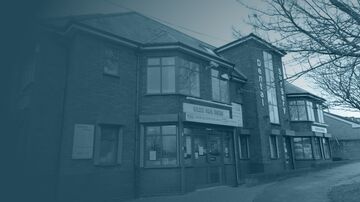
Dental Hygiene in the West Midlands
A visit to the dental hygienist will leave your mouth feeling clean and fresh. Regular hygienist cleanings are recommended to remove plaque and tartar. They can also help to keep dental restorations such as dental implants clean.
Look after your oral health with regular dental hygiene visits
Dental hygiene is concerned with oral health and focuses on keeping the mouth, gums and teeth clean and healthy to prevent infection. A healthy mouth is one of the best ways to guard against common oral diseases such as bad breath, tooth decay, cavities, periodontitis, abscesses and gingivitis.
Dental hygiene is a combination of professional dental care – regular check-up appointments, X-rays and polishes – and personal hygiene routines at home. At home daily brushing, flossing and rinsing are recommended for a healthy and clean mouth. If you are unsure how to care for your teeth or dental restorations, our team can offer expert advice to help keep you on the right track. Book your appointment today.
The benefits of dental hygiene
- Remove plaque and tartar
- Prevent gum disease
- Get advice and support
- Enjoy fresh breath
Why do you need dental hygiene treatment?
A professional dental hygiene routine will help to remove plaque from the teeth that sometimes can be missed even with meticulous brushing and flossing. An appointment with a dental hygienist will include the scaling and polishing of your teeth to remove tartar.
The treatment is quick and pain-free and will involve the removal of food deposits and bacteria away from the teeth. It is recommended that you have your teeth professionally cleaned every six months as part of a preventative routine. Even if you are thorough with your oral health routine at home a professional dental hygienist can examine or mouth and has the tools to deter any potential problems quickly.
Visited today. Excellent treatment as always. Practice Manager Karen was amazing as usual. Well run practice.
NHS Pricing bands
Transparent pricing for NHS treatments
Patient charges correct as of April 2023
We're accepting new NHS patients
Treatment Band One
- An examination and diagnosis (e.g. x-rays)
- Advice on how to prevent future problems
- A scale and polish, if required
If you need to see a dentist immediately, an urgent NHS appointment costs £23.80.
£26.80
Treatment Band Two
- Everything in band one, plus...
- Any further treatment such as fillings or root canal work
- Extractions, if your dentist needs to take out one or more teeth
£73.50
Treatment Band Three
- Everything in bands one and two, plus...
- Crowns, dentures or bridges
- This includes more complex procedures.
You only pay once for the highest treatment band, even if multiple treatments are required.
£319.10
Frequently asked questions
How can we help?
Dental hygiene treatments can spot and help to prevent many oral diseases. If you think you may be suffering from one of the following please book an appointment at Blackheath Dental practice.
Bad breath: An unpleasant odour of the mouth (bad breath) can be caused by many factors including food, tobacco, poor dental hygiene, some medication, a dry mouth or as a side effect of an oral infection.
Tooth decay: Tooth decay is the process where tooth enamel softens caused by plaque acids as they break down sugar constituents in the mouth.
Cavities: When plaque acids reach the layer of the tooth beyond enamel, known as dentine, it can cause a root cavity or hole in the tooth.
Periodontitis: Periodontal bacteria within the mouth can cause inflammation of the gum soft tissue and the surrounding bone structure of the teeth.
Abscesses: A tooth abscess can occur at the tip or side of a tooth root and is characterised by a small sack of pus caused by a bacterial infection.
Gingivitis: Gingivitis is a non-threatening form of gum disease caused by a coating of bacteria or plaque on the teeth but if left untreated can lead to periodontitis.
At your appointment, the dental hygienist will carry out a thorough examination of your mouth and teeth. They will then proceed to clean your teeth using various instruments including a small mirror, scaler and brush. This helps to remove all traces of plaque and tartar from the surface of your teeth and in the hard-to-reach places in-between.
It is recommended that you have your teeth professionally cleaned every six months as part of a preventative routine. This can help to spot any potential problems quickly and ensure that your mouth stays healthy.
Do you still have questions?
We offer excellent care and advice regarding our wide range of treatments to all of our patients.
Contact our main practice
0121 561 3526Find your nearest practice
Hear from our happy patients













